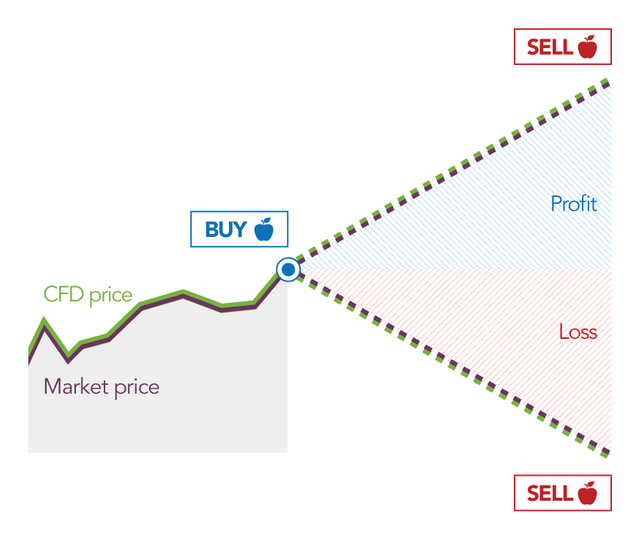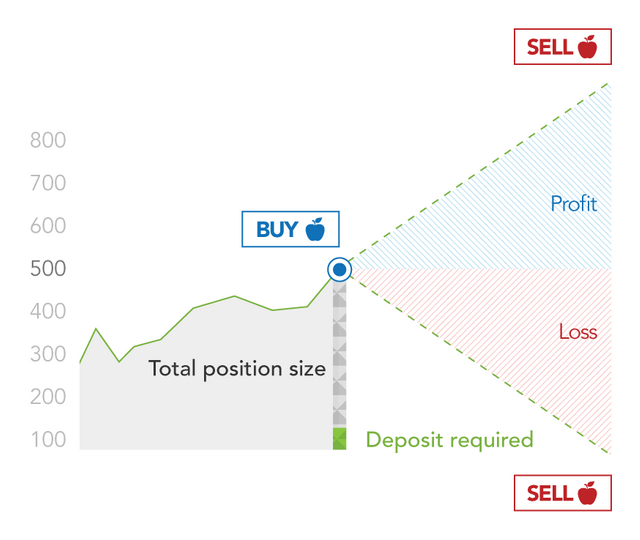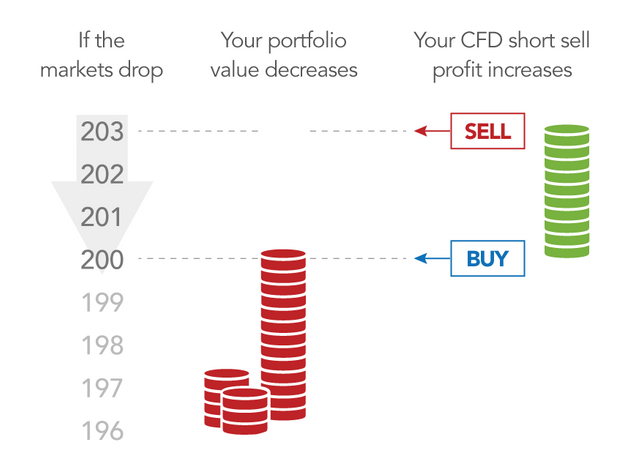CFD trading is the buying and selling of CFDs, or contracts for difference, a way of speculating on financial markets that doesn’t require the buying and selling of any underlying assets.
CFD trading allows you to trade markets like equities, forex, indices and commodities without having to buy and sell shares, currencies or futures. Instead you trade a contract known as a CFD, a form of derivative that offers several advantages over traditional trading.
What are contracts for difference?
A contract for difference is a type of derivative which works by acting as an agreement to exchange the difference in value of an asset between the point at which the contract is opened and when it is closed.
...
The price at which a CFD is trading will always match the current market price of its underlying asset. If you wish to buy a share CFD of Apple, for instance, then your CFD will increase in value as Apple’s share price increases. If Apple’s share price decreases then your CFD loses value accordingly.
However, there are several differences between trading a CFD and traditional trading. Two key differences are the ability to go long and short, and leverage.
See more CFD trading examples.

Leverage
You can also use a CFD to get exposure to a much larger position than with a standard trade. Using leverage, you can agree to exchange the difference in price of a larger amount of an asset without having to commit to the full cost of the position at the outset.
Say you wanted to open a position equivalent to 500 Apple shares. With a standard trade, that would mean paying the full cost of the shares. With a CFD, you might have to only put up 5% of the cost.
You’ll still exchange the difference in price of 500 Apple shares from when your position is opened to when it is closed, so your profit and loss will still be calculated on the full size of your position. That means that profits can be hugely multiplied: but that your losses can as well, even above your original deposit.

Why do traders use CFDs?
Beyond the ability to go short and make use of leverage, there are several key reasons why traders use CFDs:
You don’t have to pay stamp duty. You can also offset losses against future profits as a tax deduction1
You can access thousands of available markets. A CFD can be used to trade a huge range of markets, including markets that are exclusive to derivatives, like interest rates and stock indices
All on a single platform. Instead of having to trade via a stock broker, forex provider and a futures exchange, you can access all your markets on one platform
You can trade when the underlying market is closed. If you need to close a position overnight you often can do thanks to 24-hour trading, and certain key markets are tradable over the weekend with weekend trading.

Hedging
One key reason why many traders use CFDs is as a method of hedging against other open positions. If you own an asset in your portfolio that you believe may lose some of its value, CFDs can offset some of the potential loss by short selling.
For example, let's say you hold £1000 worth of Vodafone shares in your portfolio. If you short £1000 worth of Vodafone shares through a CFD trade, then should Vodafone’s share price fall in the underlying market, the loss in value of your share portfolio would be offset by a gain in your short CFD trade.
But there’s more to CFD trading than the CFDs themselves.
Hi! I am a robot. I just upvoted you! I found similar content that readers might be interested in:
https://www.ig.com/uk/cfd-trading/what-is-cfd-trading
Downvoting a post can decrease pending rewards and make it less visible. Common reasons:
Submit
it's a very good post.
The idea of CFDs is a simple one, even a CFD dummy should be able to understand CFDs but some people try to over-complicate it. Your article is very simple to read.
Downvoting a post can decrease pending rewards and make it less visible. Common reasons:
Submit